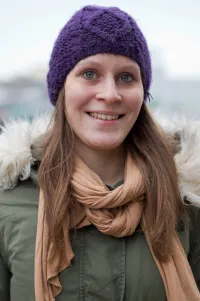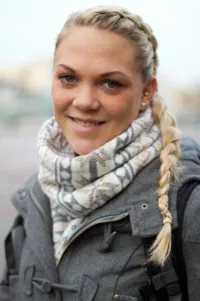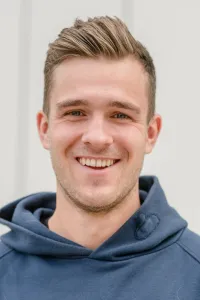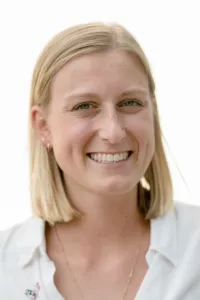
Natalja Wiese is a Sport Science student in her 4th semester, majoring in the fields Recreation – Health – Training. She is pursuing the Bachelor of Science degree.
What made you choose this degree programme?
Ultimately, I ended up studying Sport Science because of a spontaneous re-decision, as I suddenly realised that I would like to have a job in future that fulfils me and that I enjoy. And as I did a lot of different sports as a child and teenager, I was determined to have a job where I could be active, rather than simply sit in front of a computer. Moreover, I find it important to work with other people, because it makes me happy.
In which respect have or haven’t your expectations been fulfilled?
My expectations regarding the interdisciplinary character of this field of study, i.e. its diversity and its practical relevance, have actually been surpassed. I also expected my fellow students to be just as open and friendly as they turned out to be. What I did not expect was how casual the interaction with the lecturers would be – this is both pleasant and helpful. I expected the amount of work that you have to invest into one single demonstration lesson or a paper to be less; but you learn something new with every step so that it gets easier and easier as you go along.
Which aspect of your degree programme do you enjoy most?
The practical relevance is great, because you get to do a lot of studying together with your fellow students, you share ideas with them, have a lot of fun, and improve your own teaching competence. Because the courses are attended by students from different semesters, you always get to know new people, which is something I feel is very positive for both personal and collective development, because you always have to engage with and work with somebody new.
What has been your biggest challenge to date?
I always find it difficult to gauge when to start revising for a written exam in earnest and for which one. How time-consuming revising will be varies from lecture (resp. seminar) to lecture, and you always have to consider which module counts towards the final grade.
What would you like to become after completing your degree?
I chose the major Recreation – Health – Training, because I’m very much interested in recreational sports. I’d love to work in the field of tourism sports, because I enjoy outdoor sports and would like to inspire others. I could imagine working for a travel sports provider – hopefully in a position where I deal with the practical side of things, even though office work will always be inevitable.
Which advice would you like to give to students who consider enrolling in this degree programme?
To have a great liking for sports is an excellent requirement. If, for example, you already work as an instructor, you have a pretty good grasp of what it means to “teach sports”. If, like myself, you don’t have that experience: don’t worry. You will improve your teaching competence through numerous demonstration lessons, and if you do internships in addition to your degree course or have a job that’s got something to do with sports, you’ll gain extensive experience. The major you choose in your degree course depends on what kind of career you’d like to pursue in future. In the third semester, you can choose only one major; until then, you can change your mind a couple of times, so there’s plenty of scope to try things out.





